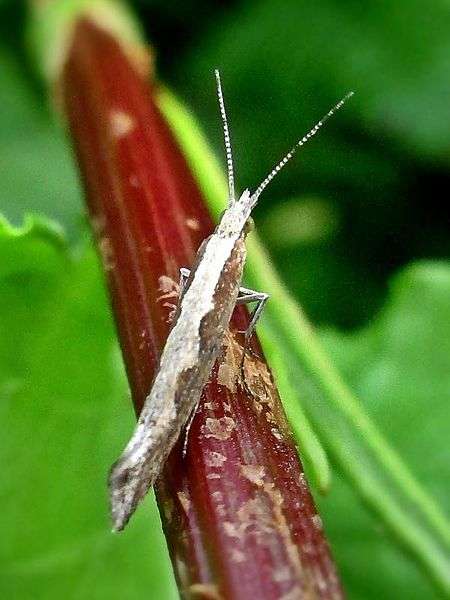Genetically Engineered Moths Could Replace Pesticides
 Scientists are looking to genetic modification to potentially save crops from pests in New York. It won’t be the food that’s genetically altered, however, it’s the insects themselves.
Scientists are looking to genetic modification to potentially save crops from pests in New York. It won’t be the food that’s genetically altered, however, it’s the insects themselves.
Entomologists at the Cornell University Agricultural Experiment Station began experiments to fight diamondback moths by genetically engineering thousands of them with DNA designed to kill female larvae, The New York Times reported [1].
Diamondbacks are resistant to a number of insecticides and continually adapt, making them one of the most difficult pests to deal with, and requiring multiple chemicals throughout the growing season to keep numbers down. Diamondback moths were the first crop pest to develop a resistance to DDT (the once popular chemical was banned in 1972 for agricultural use in the United States), and multiplied as weaker species died off.
Dr. Anthony Shelton, the lead on the experiments at Cornell, told the NYT: “Our goal as a community is to reduce the amount of pesticides used in agriculture. Why not use genetics to accomplish this?”
Tests of the method have already proved successful in Britain where an Oxford University spinoff biotechnology company called Oxitec came up with the way to genetically alter female moths to self-destruct.
According to the NYT Oxitec “stitched together scraps of DNA from a virus and a bacterium to make a gene deadly to female insects.” The female depends on regular antibiotics, and will not survive to adulthood in the wild.
The company published a study in July in BMC Biology, reporting that experiments with normal moths living in small cages showed male moths carrying the gene were able to wipe out communities of the diamondbacks.
“Females mating with transgenic males had as many offspring as those coupling with unaltered males, but the female offspring died before being able to reproduce,” the NYT reported. The synthetic gene disappears after a few generations, and is only inherited by some of the male offspring, so keeping the population in check required several influxes of new transgenic males.
In August, Shelton will test how the genetically engineered moths do in outdoor cages, stocked with wild moths, in the first attempt on U.S. soil.
Not everyone is a fan, through, and certain groups have raised concerns that the protein made by the synthetic gene could be harmful to animals that eat the moths.
Hadyn Parry, chief executive of Oxitec, told the NYT that the protein was fed to mosquitoes, fish, beetles, spiders and parasitoids and that it was non-toxic. He also said that the issue, along with others was addressed in data submitted to the Department of Agriculture, which decided the experiments would have no significant effect on the environment.